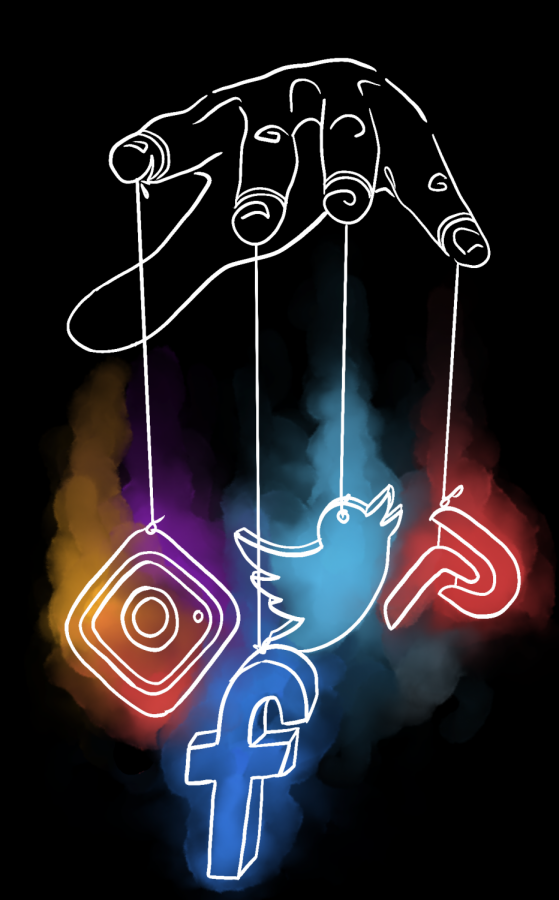Why Apple and Google Need to Un-Ban Parler
January 28, 2021
After the storming of the Capitol on January 6th, social media companies such as Twitter and Facebook removed thousands of conservative users, most prominently President Trump. Their actions highlight a larger debate over the role of social media in America, and whether these companies should have the right to restrict user content in the first place. Moreover, if social media companies have the ability to control the content on their platform, do technology companies like Apple, Google, and Amazon also have the similar right to restrict the apps and sites that users can access on their phones, even if this is how many people get news? How should social media be defined and how should the government regulate these issues?
The controversy surrounding Twitter and Facebook’s recent actions shows that it is time for Congress to create a new definition for what a social media company is, because it does not, nor should it, fall under the definition of a traditional media company. If a social media company wants to restrict content on their platform, they should have that right, but other companies should be allowed to permit unadulterated speech without being responsible for their users’ posts. One example is Parler, which has become the preferred platform for many conservatives protesting Twitter’s recent censorship of “conservative voices” on their platforms. Many have criticized Parler because it was used to plan protests at the Capitol earlier this month. As a result, Apple and Google have removed Parler from their app stores claiming it doesn’t follow their rules about policing content. Web hosting giant Amazon even shut down Parler on Amazon Web Servers, crippling the application which relied on Amazon’s backend. Despite Apple’s and Google’s opinions, Parler should have the right to exist without being required to police its users except in extreme cases, where there are already years of legal precedents for what companies are expected to do. For example, there are laws surrounding when a company has to cooperate with law enforcement and turn over data as part of an investigation. Therefore, Apple, Google, or Amazon should accept that there is a difference between the users of that platform and the social media company itself sanctioning hate speech or violence, especially as long as Parler cooperates with investigations into its users’ possible participation in the Capitol protests. These large companies are using their market power to snuff out another company solely based on a disagreement about business practices, but unfortunately, a moral appeal alone is not enough to bring Parler back.
This injustice raises a larger question as to whether Apple, Google, and Amazon should be allowed to take this action against Parler or any application on their app stores. Some say that because Parler violated Apple and Google’s App Store agreements, they have every right to remove it from their platforms. When Apple removed the popular game Fortnite from the App Store a few months ago over a dispute about how Fornite’s parent company “Epic Games” could collect payment, most people accepted that it is Apple’s right to control what games and apps are allowed on their platform. But looking at this same debate in a political context with Parler has shown how Apple’s actions extend far beyond their own app store.
Unlike video games, social media has become indispensable to American politics. Although Twitter is not the same as a newspaper or TV station as a source of reliable news, according to one study, 55% of US adults now get their news from social media either “often” or “sometimes.” Not to mention that the President of the United States has used Twitter throughout his administration to talk directly to the American people. Just like there are competing television news networks and newspapers, it is important to protect freedom of the press and freedom of information by allowing multiple social media platforms for Americans to turn to get information, especially if certain social media companies choose to censor their platforms.
It makes sense to compare this issue to how the Federal Communications Commission (FCC) has historically handled issues with newspaper, televisions and internet monopolies. In the pre-internet days, media companies were both the content and the distribution channels; they controlled both what people saw or read, and the means by which they received it. To prevent any one entity from having too much control over the news, in 1975, the FCC passed a law called the Newspaper-Broadcast Cross-Ownership rule, which bars a single company from owning a newspaper and a broadcast station in the same market. Similarly, net neutrality legislation passed under the Obama administration prohibited internet providers from charging more for certain content or giving preferential treatment to certain websites. These laws are particularly important in communities that only limited access to internet or news providers. For example, in 1983, the Cambridge city government gave Comcast a monopoly over the cable TV system in the town (a new technology at the time). Today, the descendant of that cable system makes Comcast the sole TV and broadband internet provider for 90% of Cambridge residents. With the repeal of net neutrality in 2018, Comcast can now legally prioritize access to certain websites or slow down service to others unless they pay an extra fee. Comcast’s monopoly in Cambridge means residents are powerless to control the company. Imagine then, if Comcast decided to slow down internet speed to CNN or to only allow you to access Netflix’s website if you pay an extra fee (so that you are more likely to watch TV using Comcast’s Cable package instead). This seems like an outrageous overstep of corporate power, but unfortunately, by repealing net neutrality, the government has shown that it cares more about corporate lobbying than protecting the interests of internet users. They have let us down.
In the modern world, there is now a bifurcation between the content providers and the distribution channels. Social media users generate the content, but the distribution is now handled by App Stores managed and controlled by Apple and Google, on an internet run by service providers like Comcast, and hosted on servers by companies like Amazon. Apple and Google now control at least 99% of the mobile operating system market. When these companies take steps to remove alternative social media platforms like Parler from their app stores (or when Amazon shuts down their servers), they are censoring the news. App stores have become a medium for accessing information, just like a radio tower or a TV antenna. Instead of crusading against Twitter or Facebook, which frankly should be allowed to do whatever they want on their own platforms, the more pressing issue today is how a few companies have monopolized access to content on the internet itself. Activists and lawyers should be suing companies who have used anti-competitive practices to monopolize internet access, services, and devices and they should lobby the government to apply anti-trust legislation to big tech companies. Specifically, Apple and Google should allow all parties to place apps on their platforms and rely on law enforcement to use existing laws to go after users or organizations who post indecent or dangerous content. Without a free and open channel to access the internet, how can we ever hope to have a free and open democracy in America?










